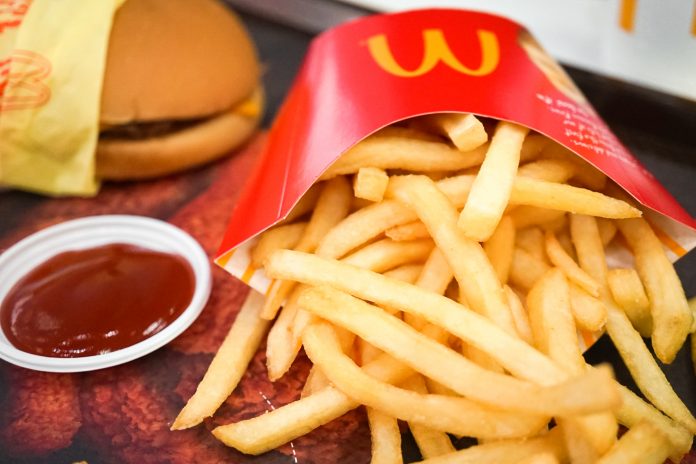The UK government will now fine food businesses £2,500, if they don’t put calorie information on menus
The UK government have now implemented a law that requires all businesses to place calorie information on menus. The law will mean that businesses with over 250 employees will now have to pay a fine of £2,500, if they ignore improvement notices.
Right now, it is estimated that obesity-related conditions cost the NHS £6.1 billion each year. Since the COVID pandemic begun, weight-related issues have resulted in increased ICU admission and severity of the virus.
The changes, approved by Parliament in 2021, are part of a new obesity strategy. The strategy also includes regulations to restrict the promotion of less healthy foods both in shops and online, with similar limits on what kind of food is advertised before 9pm.
According to research, food that people eat outside the home is now responsible for 20-25% of adult calorie intake.
Public Health Minister Maggie Throup said: “We are used to knowing this when we are shopping in the supermarket, but this isn’t the case when we eat out or get a takeaway.”
Which businesses will be required to put food calories on menus?
- Restaurants, fast food outlets, cafes, pubs and supermarkets;
- Home delivery services and third party apps selling food that is in scope of the legislation;
- Cafes and takeaways within larger shops and venues, such as supermarkets, department stores, and entertainment venues such as cinemas;
- Specialist food stores, delicatessens, sweet shops and bakeries;
- Contract catering – for example, for events and canteens;
- And domestic transport businesses including planes, trains, ferries and other forms of water transport within the UK.
There are mixed reactions to the new law
Diabetes UK appear to support the move. Obesity is a key factor in the development of diabetes, which impacts 13.6 million people across the UK.
Bridget Turner, Director of Policy, Campaigns and Improvement at Diabetes UK, said: “Diabetes UK campaigned strongly for these measures through our Food Upfront campaign. We hope it will bring these large, out-of-home businesses more in line with the food retail sector when it comes to giving people clear calorie information for the food they buy, hopefully leading to improved menus and healthier options.”
While diabetes prevention and remission are specific issues that can be impacted by calorie consumption, there are more general concerns for the widespread implications of psychological and physical health.
For instance, eating disorder organisations are adamantly opposed to the change.
They say that the fixation on calories can harm the recovery of eating disorder sufferers, while creating the possibility of hyper fixation on calories for young, impressionable kids.
A recent study in the UK found that 61% of people felt that their struggles with eating had become harder to manage over the pandemic lockdown, leaving these individuals more at risk of relapse or worsening symptoms than in ordinary times.
The organisation, Beat Eating Disorders, highlight that the measurement of “around 2,000 kcal a day” for adult daily intake is false. According to healthcare experts, every individual has a different ideal daily intake of calories – depending on age, metabolism and levels of physical activity.
Beat further commented:
We’re extremely disappointed that the government is making calories on menus mandatory in England from 6 April.
We know it causes anxiety for people affected by eating disorders.
We know it can increase fixations on restricting calories for anyone with anorexia or bulimia. 🧵— Beat (@beatED) April 6, 2022











